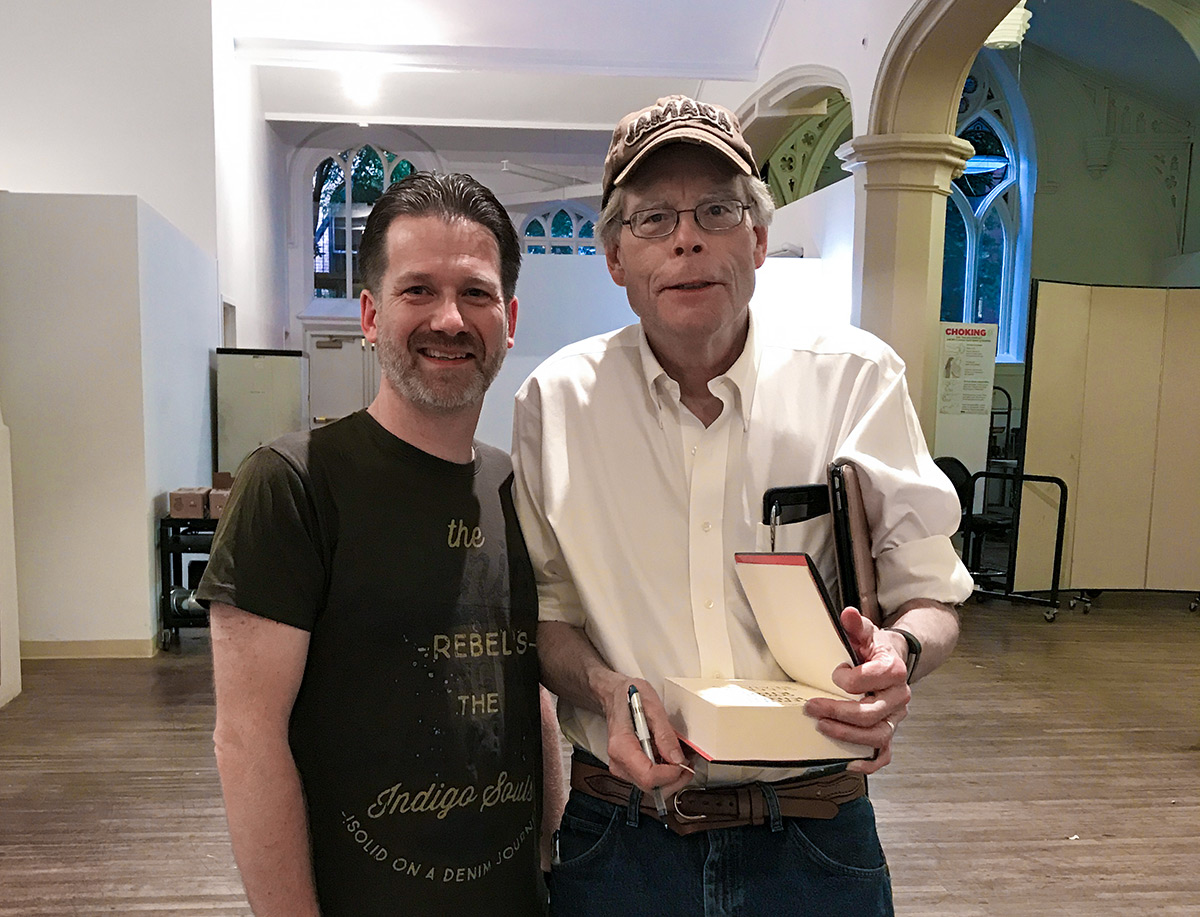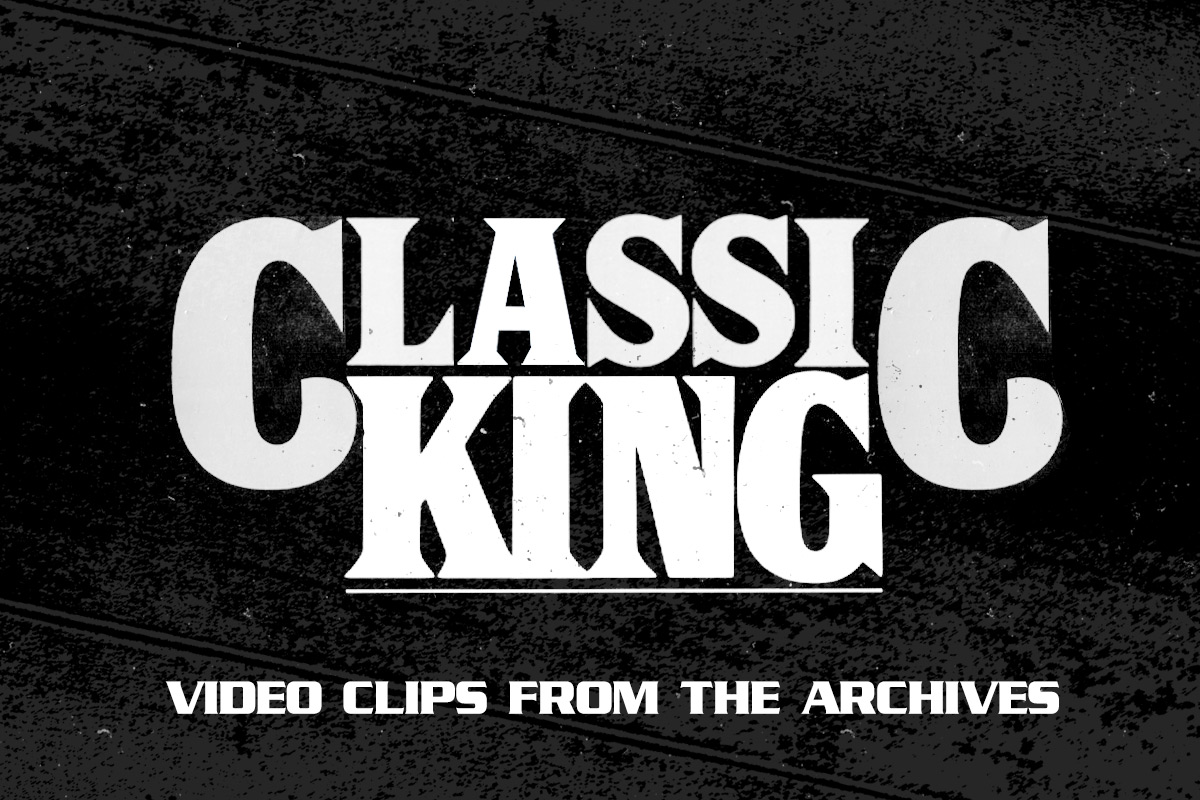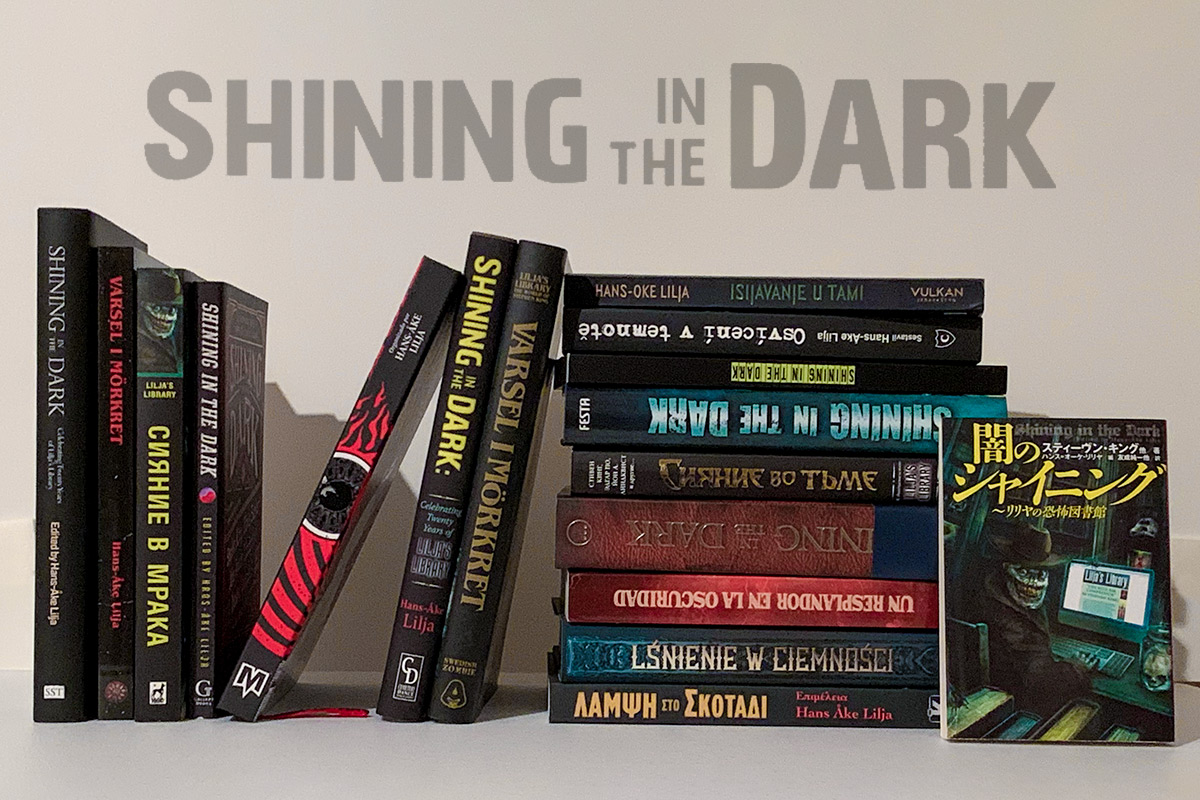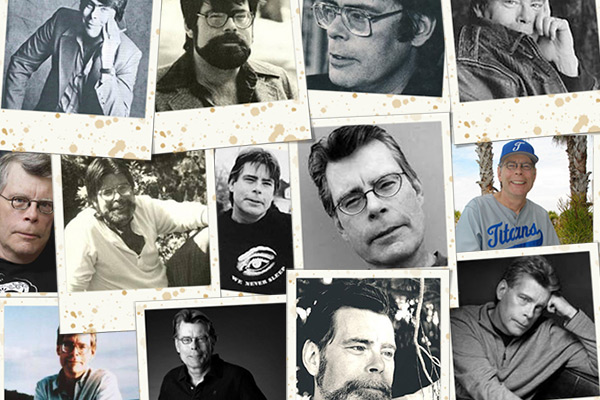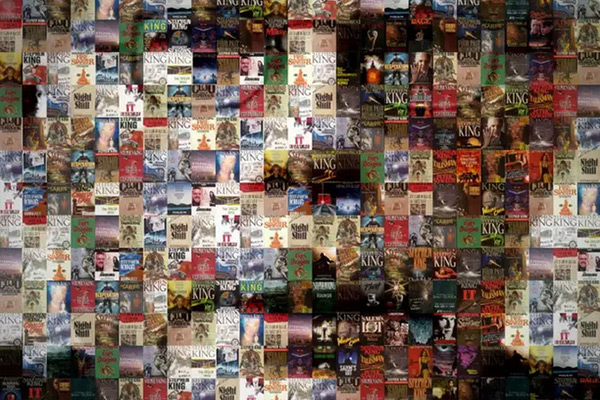Philippa Pride
Posted: June 12, 2007
_
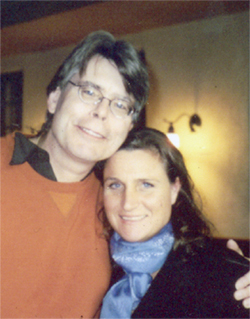 Philippa Pride is Stephen King's UK editor and she was kind to take time of in her busy schedule to talk to me about life as an editor to one of the biggest authors alive today. Here is what she had to say...
Philippa Pride is Stephen King's UK editor and she was kind to take time of in her busy schedule to talk to me about life as an editor to one of the biggest authors alive today. Here is what she had to say...Lilja: How does one become an editor?
Philippa Pride: (a) The route I recommend is that of an apprenticeship in publishing - it is a valuable way of learning by experience. I was assistant to Stephen King's editor when I first came to Hodder - it was a first-rate training.
(b) I also recommend training courses - there are many excellent courses for copy-editing, desk editing, presentation, communication, libel etc . I found all of these a support in the day-to-day business of publishing books.
(c) If you are going for interviews, I recommend reading a lot of books, in every category - it's a great way of recognising what is commercial (which can also be literary). Be aware of what is selling, why it is selling, how it is being published as well as coming trends etc. In Stephen King's marvellous book On Writing (which I recommend to every aspiring editor as well as author) he says to become a writer you have to read a lot. The same applies to editors.
(d) Once you're in a job (as assistant), shadow edit; I used to type up or read my boss's notes alongside the scripts he edited. Offer to read and report on submissions for the senior editor. The passion starts in-house with the editor.
(e) Spend time in bookshops - look at the covers, the promotions, what people are buying. Read the reviews. Look at the weekly bestseller list. Talk to booksellers. Read blogs. See what's popular in other areas of the media - TV, film etc. Be enthusiastic.
Lilja: Can you tell me a little about what an editor do?
Philippa Pride: I have heard the role of a commissioning editor being compared to that of a film producer - and also mid-wife!
Simply, the commissioning editor's role is two-fold:
(1) To find exciting authors and scripts (directly, from literary agents, from scouts), have a vision for how to position and publish the book in both hardcover and paperback, take it through the acquisition meeting (pitching to colleagues in Sales, Marketing, Publicity, Rights), to acquire the rights and to champion that book to publication and beyond.
In a publishing house the editor is the central cog in the wheel (comprised of Sales, Rights, Publicity, Contracts, Royalties, Marketing, Art. Production). Editors work with these departments each step of the book's journey.
(2) To nurture the author, to think about the long-term strategy and to edit the book in question, seeing it through all stages of the editing process to finished book.
The editing process can be broken down into two basic stages - structural editing (ie notes to the author about pace, character, motivation, storyline) and copy-editing/line-editing (often done by a freelancer, to catch any outstanding inconsistencies, to cross ts and dot is, to prepare the script for press).
As Stephen King's British editor, I run a monthly meeting with Hodder's Managing Director where we discuss what is coming up, sales and subscriptions, when we are going to schedule his new titles in hardcover and mass market, we explore initiatives for the backlist titles, discuss how to publish and garner early support (eg building on the word of mouth through galleys, samplers) for books and audio, find out about film news etc.
I am always looking at developing campaigns with the team at Hodder to grow Stephen King in the UK and international territories - we look to target new audiences for his titles, to satisfy the fans, but also to appeal to new readers. We also look at how we can work with retailers to achieve this.
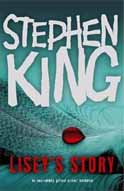 Last year Stephen King came to the UK to promote Lisey's Story in hardcover. We are building on the increased media attention and public awareness to benefit the mass market edition of the book this year - tailoring promotions to find even more readers, break records and go for No. 1.
Last year Stephen King came to the UK to promote Lisey's Story in hardcover. We are building on the increased media attention and public awareness to benefit the mass market edition of the book this year - tailoring promotions to find even more readers, break records and go for No. 1. Just to give you a flavour, I'll take today as a day in my life as Stephen King's British editor. Here is what I am doing, in addition to this interview:
Today's work includes sending a finished copy of The Bachman Books to the author and his agents, checking the revised page proofs for the paperback edition of the updated 'Salems Lot (with two excellent stories related to the events of Jerusalem's Lot published in mass market paperback for the first time) which comes out in October, looking at rough artwork of some of the reissues A-formats I briefed earlier in the year, checking final adverts for Blaze by Richard Bachman from Marketing which are going to be up at railway stations in London and Leeds, and I'm pulling out pages from Steve's new book Duma Key to give to Art so they can consider illustrating them, working on very early draft blurb for Duma Key (see below), and preparing an agenda for a monthly Stephen King meeting (where a small group of key members from each dept. gather to look at every aspect of our King publishing - past, present and future opportunities).
Lilja: How long have you been Stephen King's editor and which of his books have you edited?
Philippa Pride: I started at Hodder 1986, became editorial assistant to Stephen King's editor in 1987 (excellent apprenticeship), progressed to junior editor, and then editor - for some 20 years now.
Obviously, as you will see from the description of the job above, there is more to being a publisher's editor than going through the script with a pencil, though that is often vital. In the case of an author published by different publishing houses all over the world, he obviously won't want editors from every country wielding a pencil! Steve has a fantastic editor in the US who does most of the primary work with him, but I am lucky enough to have the kind of relationship with him whereby I can add my early comments to the mix. Thereafter my role is that of organiser and champion.
I have looked after the British editions of his titles (in UK + BCN ex Can) coming in as assistant for hardcover editions of The Dark Half, and the uncut edition of The Stand, The Tommyknockers, assisting on Four Past Midnight, Needful Things, Gerald's Game, and becoming editor for both hardcover and mass market editions of the new titles Dolores Claiborne, Nightmares and Dreamscapes, Insomnia, Rose Madder, Desperation, Bag of Bones, The Girl Who Loved Tom Gordon, Hearts in Atlantis, The Dark Towers V-VII (and new editions of paperbacks I-VII), Cell and Lisey's Story. Alongside these, I have been editor for the mass market editions of the entire backlist.
For the mass market paperbacks, we treat the title effectively as a brand new book, producing new jackets, new jacket copy, new prelims and end matter (including adverts and also extracts of new books for example) - the team working to appeal to an even wider readership, position the books in the market place where they can best be seen in appropriate promotions, and reinvigorated press coverage.
It is a joy publishing Stephen King because I am passionate and excited about each and every one of his books.
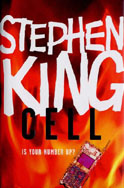 Last year was a bumper year with Cell reaching No. 1 in hardcover, and Lisey's Story becoming his bestselling ever title in hardcover. Cell was a phenomenal success in mass market, and Lisey's Story is lined up to be the summer's sensation.
Last year was a bumper year with Cell reaching No. 1 in hardcover, and Lisey's Story becoming his bestselling ever title in hardcover. Cell was a phenomenal success in mass market, and Lisey's Story is lined up to be the summer's sensation. Last year we also embarked on a Classic reissue programme - producing 6 of his titles, The Shining, The Stand, Bag of Bones, Misery, Christine and Carrie in beautiful B-format livery.
This year, we are producing the titles above and the entire backlist in A-format in the same livery as Cell, with a graphic icon and new brand author lettering. We have stunning new jackets, refreshed copy, prelims and setting for some books, and a programme which will mean that all titles (except the Dark Tower) will be available in this new look by February 2008. We are working with retailers at home and abroad on new opportunities for these ever popular books.
We also have an exciting new website www.stephenking.co.uk which I have been discussing with my colleague in marketing - which we shall continue to update throughout this year. I recommend all your fans take a look for what's coming up - books, audio, King clips, reviews etc.
Lilja: Is there a big difference between editing Stephen King, one of the biggest names in the business, and someone unknown?
Philippa Pride: It's a privilege to champion a writer whose brand is recognised throughout the world and who happens to be my favourite ever author. He is also the most professional and lovely man in our industry. He is an author whose writing is welcomed by both critics and public alike - ready to lap up the next book.
With a new author, you have the excitement of watching him or her discover themselves and the business. Yet I always feel there are new boundaries to explore with Steve as well - and his writing proves that point time and again!
Another distinction is that Stephen King has a huge backlist which continues to sell year in year out, proving that he is a Classic in our time. We publish some 40 titles, many of which we are relaunching this year as mentioned. This wealth of titles and wide appeal also set him apart from a new writer. Start with any book - and you're hooked.
Lilja: How long before the book is published does the editing process start?
Philippa Pride: On a standard track, manuscripts will arrive with the publishing house 12 months before publication. The publisher needs time to edit and prepare the text, design a jacket, devise a marketing strategy and present the results to the retailers, who need to start making their own buying decisions at least six months before publication. However, there are exceptions, and for a book as important as a new Stephen King, it's possible to publish on a faster timescale.
Lilja: Can you take me through the process of what happens from the time you get the word that Stephen has a new book that needs editing and the book is finished?
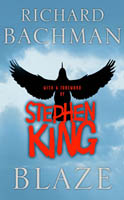 Philippa Pride: I'm answering this by describing some of the steps on the book's journey - some are simultaneous rather than sequential.
Philippa Pride: I'm answering this by describing some of the steps on the book's journey - some are simultaneous rather than sequential.Step One: When the book comes in I read it - and oh boy - I just get sooooooo excited when a new Stephen King script comes in. It is one of the most wonderful moments of my career. Then I just read the first page and I know I am going to be transported into another world. And I can just stop everything else I am doing and read the book right through from start to finish.
Step Two: Why not let the author know what you feel about the book - it's a joy to do this when you love it, as I have with each of Stephen King's new novels. You will be one of the first people to read it and you are reading something so precious. Give the author general feedback on the book. And talk to him/her about their wishes, what's important to them, their vision for the book. And in turn, I inform the author and his agents every step of way about publishing strategy.
Step Three: Report to the team - my report will include detailed publishing/business information for planning purposes, as well as what the book is about.
Step Four: The book needs to be scheduled - carefully. In the case of Stephen King, considerations are (a) ideally scheduling alongside the US edition in all our markets so that readers in each territory have the chance to read the book at the same time (b) consider what other big titles are coming out from Hodder and other publishers in the UK.
Step Five: The editor is also responsible for giving each book a "birth certificate" of sorts - ie registering it with an international standard book number (a unique I/D chip of sorts).
Step Six: Brief the jackets - this means coming up with ideas to the art dept for images and typeface., and giving them relevant pages of the manuscript to illustrate. At least 10 months before publication.
Step Seven: Write an early title information sheet which will include a short synopsis of the book, key selling points, the unique feature/sales point of the book, previous excellent reviews, an up to date biography, format, price, extent.
Step Eight: Write draft catalogue copy and jacket copy and present it to the author for his input. Occasionally, an author will write copy for the editor to use/fine tune - Stephen King wrote outstanding copy for BLAZE by Richard Bachman which forms the main part of the hardcover blurb. I usually take a new line for the paperbacks - the space is shorter, the casual bookshop browser needs to be grabbed quickly.
Step Nine: Hardcover. In the case of Stephen King, I get in touch with Stephen King's American publishers and find out their due dates for: revised script, copy-edited script, copy-edited script approved by author, galleys/page proofs, collated galleys/revises, final revises. My colleague in production will then produce a schedule for our edition of the book.
Step Nine A: I will send the US copy-edited, King-approved script, or typeset galleys, to our British freelance editor to prepare for press, marking up to our own Hodder style. Any queries he raises, I will pass to Scribner who will collate them with their own and forward to the author where appropriate. I will then pass the marked script with prelims for the Hodder edition to our Production Dept.
Step Nine B: Our Production Dept. will send out to a typesetter to produce page proofs. I will send these proofs to a freelance proof reader, and to the author, to check for typographical errors and any final inconsistencies. We will then check the final revised page proofs before they go off for printing and binding.
Step Ten: Stock will come into our warehouse one month before publication, and will be sent out to retailers to fill pre-orders, and to put on sale on publication date.
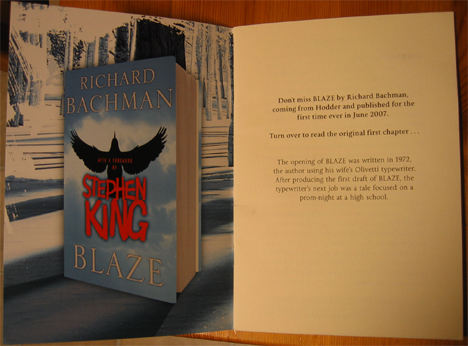
Step Eleven: I liaise with Marketing on everything they are thinking about to promote the book to the public and in partnership with retailers (this includes all material and copy from in-store dumpbins to radio ads and posters). I also liaise with Steve's excellent publicist - both in bouncing ideas forward and back for publicity opportunities (including highlights for the recent tour) and also making sure that I equip myself with the latest reviews etc for putting on future books and marketing material.)
Step Twelve. The mass market editions. As I have mentioned, I provide a new brief for the jacket, new copy, new prelims, new adverts and end matter, and look for new opportunities with retailers.
Lilja: How much influence do you have on him? Does he just accept your suggestions or is it a "fight"?
Philippa Pride: Stephen King is probably the most professional and also personable author anyone could ever be lucky enough to work with. He truly KNOWS about publishing - and as an expert, he helps the publisher to do the best job they can by supporting the publisher he has chosen for his books. The few times he has ever said - so gently - that he isn't bowled over by for example a jacket, we will always willingly change it - why "fight" when there will always be a third and probably much better option which will please both our Sales team and Stephen King; we can have both a happy author and a happy publishing company. At the end of the day, we are publishing his books, and we are batting on the same team.
In general with authors and editing notes, I would say that authors are invited by editors only to use those notes which they themselves consider to be of value (and then the authors often use them as a springboard for changes, rather than following the editor's exact solutions). The book will always ultimately be only the author's - because he will choose who or what to respond to.
I really appreciate feedback from colleagues on blurbs etc - it gives me options.
Lilja: How big influence do you have on the finished result compared to the US editor?
Philippa Pride: The Hodder edition of the book is different from the Scribner edition of the book - as we are tailoring to a different market. We usually have a different jacket, different design. The author understands there have to be local requirements.
As a rule of thumb, with British authors the UK editor is primary editor. With American authors, the American editor is the primary editor. I add my feedback to the mix, and work closely with the American publisher, to share our copy-editing and proof reading notes in time for them to be sorted in one go.
I don't change the US spellings - there is plenty of dialect within the dialogue of Stephen King's work, and he also uses words which are his own, not found in any dictionary, but fit the context perfectly in a way no existing dictionary word could. However, for the British reader, we do make some small typographical changes.
Lilja: Has there ever been a thing you wanted him to change that has had a big impact on the books general plot and if so, did he make the change?
Philippa Pride: I'm of the school that if it ain't broke, don't fix it.
Lilja: So, what's up next for you when it comes to Stephen King?
Philippa Pride: This week, we are publishing Blaze by Richard Bachman. It was written in the early 70s, and has been edited and updated by Stephen King. We are producing new editions of the paperbacks The Regulators, The Bachman Books and Thinner alongside, in our new Stephen King livery, but with distinctive black backgrounds.
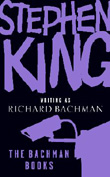
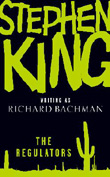
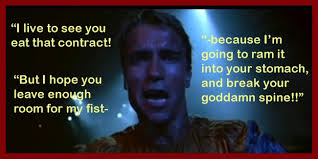
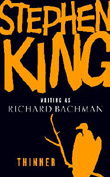
Blaze was lost among Stephen King's papers and only found last year - what a find. A dream come true for all Bachman fans around the world. A delightful novel reminiscent of Of Mice and Men with the chill of Fargo.
In July, we are publishing Lisey's Story in mass market paperback. We have a stunning new cover on it (in the Cell paperback style), excellent quotes on the cover and prelim pages ("King is the greatest popular novelist of our day - A consummate and compassionate novel - one of King's very best" - Guardian) and an extract from Blaze features in the back, taken from the original pages the author typed on his Olivetti typewriter.
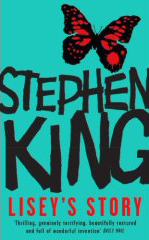 As I mentioned, we are also producing reissues of the entire backlist in the stunning Cell/Lisey's Story mass market livery - see www.stephenking.co.uk
As I mentioned, we are also producing reissues of the entire backlist in the stunning Cell/Lisey's Story mass market livery - see www.stephenking.co.ukFILM NEWS: In August (as above), we have the tie in of the film 1408 - from Everything's Eventual, starring Samuel L Jackson and John Cusack. And we are waiting for news on the films of Cell and Mist (from Crew). The Mist will be directed by Frank Darabont, or The Shawshank Redemption and The Green Mile fame. We'll do a tie in of the books, and of the unabridged audio for Cell, read by Campbell Scott
We have provisionally scheduled Duma Key, Stephen King's brand new book, for January 2008, in hardcover - global publication.
Lilja: (If there is anything new from King in question 10) Can you tell us something about it?
Philippa Pride: In an interview with Paris Review, Stephen King says Duma Key is "about a guy named Edgar Freemantle who has an accident and loses an arm. So right away I'm thinking maybe there's some paranormal symptomatology with missing limbs. I knew that people who lose limbs have phantom sensations long after the accident."
EARLY BLURB NOT FOR QUOTATION:
Duma Key is the engaging, fascinating story of a man who discovers an incredible talent for painting after a freak accident. He moves to a "new life" in Duma Key, off Florida's West Coast; a deserted strip, part beach, part weed-tangled, owned by a patroness of the arts whose twin sisters went missing in the 1920s. Duma Key is where out-of-season hurricanes tears lives apart and a powerful undertow lures lost and tormented souls.
Here Freemantle is inspired to paint the amazing sunsets, and to make them fresh by adding surreal objects. But soon the paintings become predictive. His itching arm becomes far reaching and far seeing. And the paintings will become dangerous to those who buy them. Freemantle knows the only way forward is to discover what happened to the twin sisters - and what is the secret of the strange old lady who holds the key?
The story is about friendship about the bond between a father and his daughter. And about memory., truth and art. It is also is a metaphor for the life and inspiration of a writer, and an exploration of the nature, power and influence of fiction.
It combines the narrative drive of Cell with some of the fascinating themes of Lisey's Story and will appeal to everyone who loved Bag of Bones and Rita Hayworth and Shawshank Redemption.
With that I want to thank Philippa for this very interesting interview and if any of you have any comment on what's said here, please let me know

